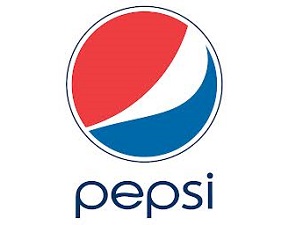
As Congress raised taxes on sugar-sweetened beverages, beverage maker Pepsi-Cola Products Philippines Inc. has decided to reformulate its soft drinks mix to avoid heftier tax starting January next year.
This move was revealed after officials of Pepsi met last week with Sugar Regulatory Administration (SRA) – led by its chief Hermenegildo Serafica and board members Emilio Yulo and Rolando Beltran – to ensure that local farmers can support Pepsi’s shift to using 100 percent sugar in its products. The current formulation uses 60 percent sugar and 40 percent high fructose corn syrup (HFCS).
With the new sugar-sweetened beverage (SSB) tax, beverages using HFCS will be taxed at P10 per liter, while drinks using sugar would be taxed at P5 per liter. The much-debated change in the tax regime covers energy drinks, powdered juice drinks and soft drinks.
Moreover, the SSB tax will also double the rate on imported sugar in favor of its locally sourced counterpart. Pepsi, for its part, has been using locally-sourced sugar for its products.
An official from the Pepsi who wished to be anonymous said that despite the reformulation, the taste of Pepsi’s carbonated drinks would remain the same, noting that the company had been preparing for the shift to a new tax regime.
“As early as May, the great possibility of the law being issued is big, so we started reformulating. We have prepared (a new mix) without altering the taste of sugar,” the source said.
Meanwhile, Pepsi is looking to sell its remaining HFCS inventory to other companies to avoid loss. SRA said Pepsi was looking to sell excess HFCS shipment to an entity in Vietnam.
While Pepsi’s shift to use sugar is a welcome development for the SRA, administrator Hermenegildo Serafica said the agency would still need to recalibrate its forecasts and expectations for the industry.
SRA board member Rolando Beltran said HFCS’ share in the market would eventually need to be filled up by the sugar industry once companies like Pepsi Philippines decide to shift to other forms of sweetener.
Moreover, smuggled sugar from Taiwan and Thailand continue to flood the market. The SRA is set to team up with the National Bureau of Investigation, Bureau of Customs, and the Criminal Investigation and Detection Group to look into the matter.
With the implementation of the SSB tax, the Department of Finance is expecting some P45 billion of fresh revenue during its first year of implementation, which will be used to exclusively help fund government projects for health, infrastructure, education, housing, and social protection.
But according to Federation of Philippines Industries Chairman Jesus Arranza, the move would only “segmentize the market.”
Since the law only includes beverages with sugar mixed directly into them, Arranza said hand-crafted coffee drinks which are usually consumed by those who belong in the lower middle to the upper class are excluded from the additional tax.
Commercial coffee shops that sell hand-crafted drinks priced at P150 to P200 give consumers the option to use condiments in their drinks, including sugar.
As for the Beverage Industry Association of the Philippines where Pepsi is a member of, the association said the group would issue a statement once the implementing rules and regulations (IRR) of the new tax law is issued by the Philippine Competition Commission.

